On October 23-24th, 2023, we traveled from San Diego to do a Los Angeles graphic recording at Connect23, an event which brings together various non-for-profit organizations supported by The Schmidt Family Foundation. We were brought on by their main grant-making arm, the 11th Hour Project, which partners with communities around the world to transform our energy systems help develop renewable energy, maintain healthy oceans, create just and sustainable food systems and protect human rights.
Our portion of the event concentrated on the 11th Hour’s human rights work in Africa which seeks to protect and defend communities’ rights in the face of harmful extractive development, while at the same time promoting food sovereignty in Africa.
The two-day event was a unique experience for us as there were both English and French speaking attendees/speakers. We wore translation devices to aid us in understanding much of what was being said. The speakers often switched back and forth between languages, which proved to be a challenge, but sort of fun as well!
Despite the language difference and more attendee centric nature of this event, we were able to capture a lot of information from these sessions. This event was one of the prime examples of the benefit of a two person graphic recording team. Nick did the main listening and drawing of the information while Angela did research (since some of the words did not translate or some of the information was unknown to us) and interacted with the attendees.
The first day was a full-day and had three content-packed sessions, which you can read about below.
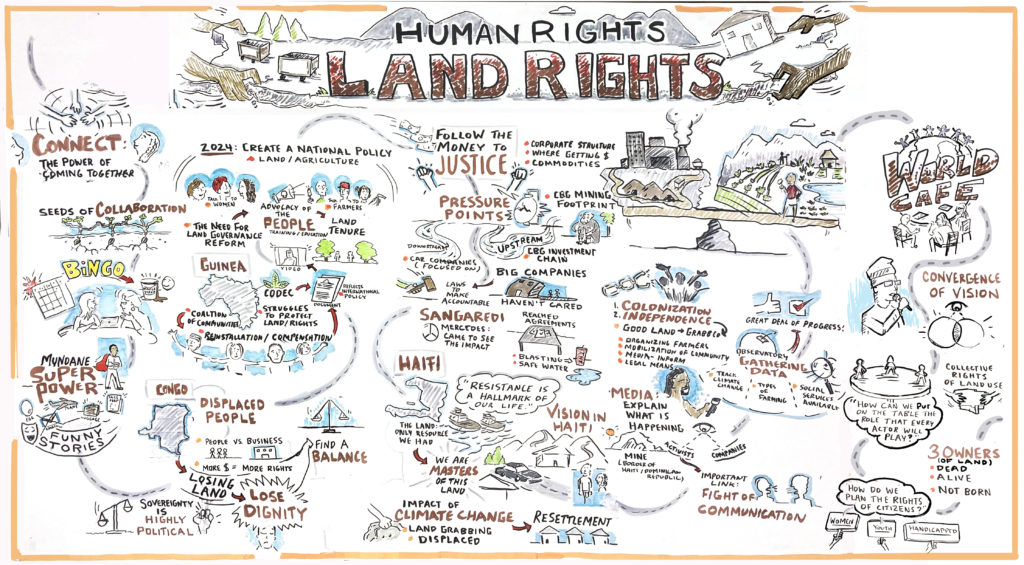
Human Rights: Land Rights. This session concentrated on land rights. Land is a fundamental asset for sustaining communities’ economic, social, spiritual, and cultural development. Yet, many of the communities supported by the 11th Hour Project face considerable hindrances when it comes to protecting access to and ownership of land, either due to poor governance practices, corruption, chaos of war or displacement from their homelands. This session addressed many of the challenges faced by communities and the ways in which civil society organizations and movements are working to address them.
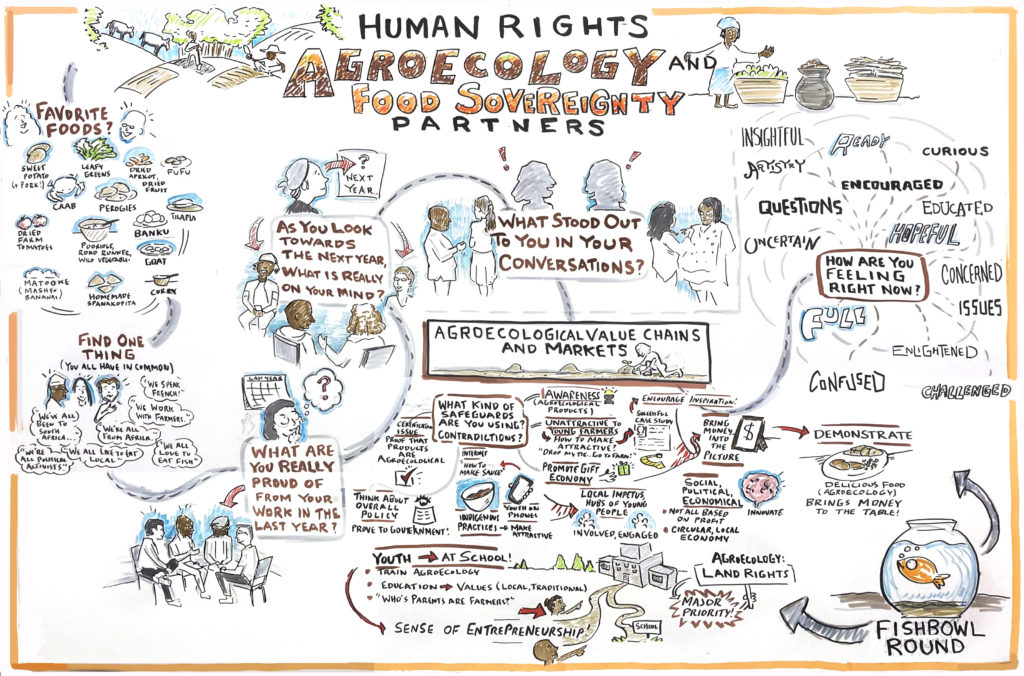
Human Rights: Agroecology and Food Sovereignty. This session was a round table session where the participants shared common ground and discussed their “wins” and “issues” from the past year in regards to developing agroecology and advancing food sovereignty. It was a way for all of them to have a think tank moment to help each other move forward in their work and feel uplifted.
Day 2
The day started out with some highlight speakers but the main focus of the day was the two group deep-dive sessions into Agroecology.
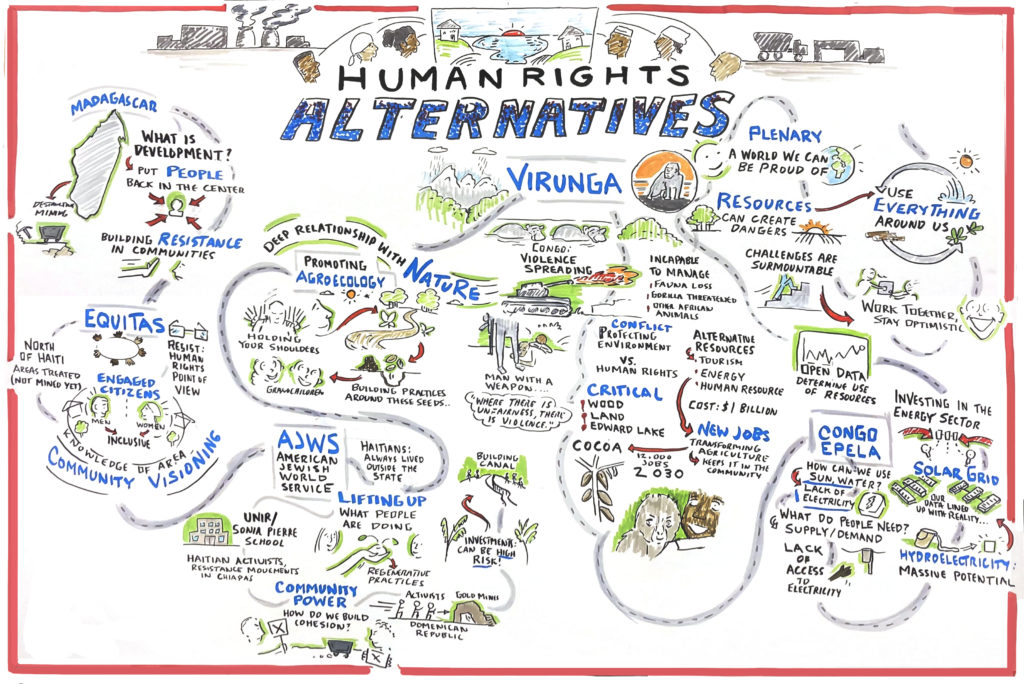
Human Rights: Alternatives The Director of Virunga National Park, Emmanuel de Merode, was one of the main speakers of this session. He shared the various ways in which Virunga (a UNESCO heritage site) is building an alternative, inclusive green economy that is grounded in the sustainable management of natural resources(such as small scale hydropower), while at the same time defending itself from the threat of corporate interests in the park, including oil and gas interests. (Angela was a bit starstruck and recommends watching the Netflix documentary Virunga)
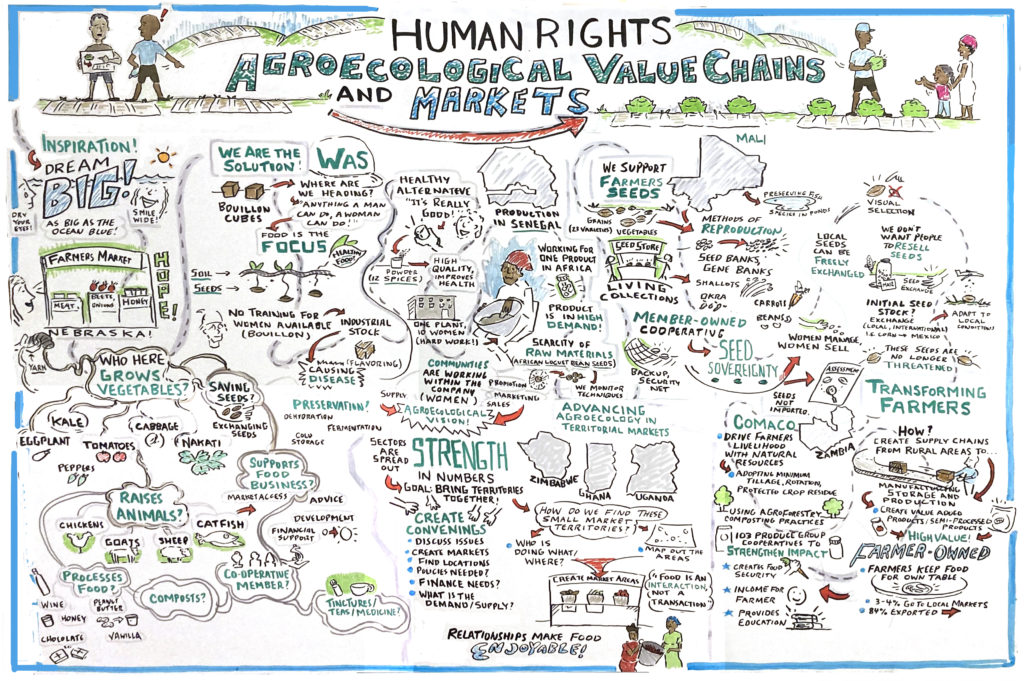
Human Rights: Agroecological Value Chains and Markets. This session allowed us to work our two person team magic 🙂. The attendees were broken up into two different groups. We each went to one of the groups and were able to record the information.
Each group shared the different methods of agroecology in their area and how they used that system to economically benefit their respective regions as well.
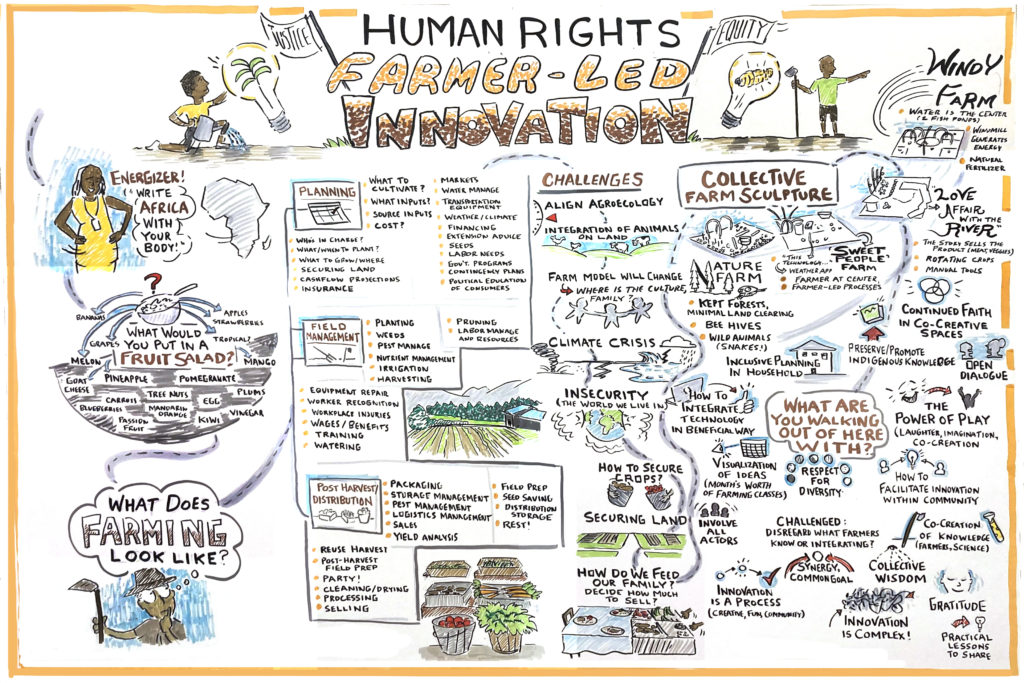
Human Rights: Farmer Led Innovation. This last session was playful and fun. We acted more as observers and recorders of what was going on in the room. The attendees were broken up into groups and were given craft-like materials (popsicle sticks, pom poms, pipe cleaners, etc.) to create a model of a farm. They presented their models to the group highlighting the different farm tools and technology they would use on the farm.
The African attendees were kind, gracious, and passionate about their work. They were super intrigued by graphic recording as they had never seen anything like it before. They took pictures of the boards and asked us about what we were doing. There was so much interest that the 11th Hour asked if we would help create French translated versions of the boards – which we did (they translated and we changed the text digitally).
Thanks to The 11th Hour Project and The Schmidt Family foundation for entrusting us with your event. We learned a lot and were happy to be a part of the event!
Nick and Angela Navatta